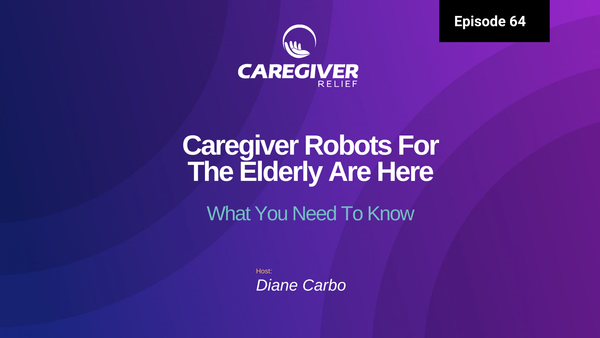Can ADHD Cause Memory Loss?

In this article, we are discussing if Attention Deficit Hyperactivity Disorder (ADHD) can be a cause of memory loss. We will explore some potential connections between ADHD and memory loss, the steps needed to diagnose them, the approaches that can be taken to treat it, and how the lifestyle changes can help improve memory loss. Finally, we will provide tips and resources for further research.
We hope that by the end of this article, readers will have a better understanding of how ADHD can affect memory and the various strategies they can use to help manage any associated memory problems they or their loved ones may be experiencing. Let’s dive in and learn more about ADHD and memory loss!
Attention Deficit Hyperactivity Disorder (ADHD)
Attention Deficit Hyperactivity Disorder (ADHD) is common among children and adolescents, but can continue into adulthood. It is a neurodevelopmental disorder that causes difficulty with attention, hyperactivity, and impulsivity. According to the Centers for Disease Control and Prevention, it affects around 11% of children ages 4-17 in the United States.
Common symptoms of ADHD include:
- Inability to stay focused on one task for an extended period of time
- Trouble controlling impulses
- Risk taking behavior
- Forgetfulness
- Easily distracted by external stimuli or events
- Tendency to be overly active or on the go
Many individuals who are diagnosed with ADHD have difficulty with planning, organization, and completing tasks as well. Diagnosis of ADHD is usually done by a licensed health care professional, such as a psychologist or psychiatrist, who can evaluate for symptoms and conduct specialized tests if needed.
Memory loss can be a difficult and confusing experience to go through, both for the individual dealing with it and their loved ones. But what exactly is memory? How does it work, and how can one recognize when someone is having memory issues?
Memory is a complex neurological process involving encoding, storage, and retrieval of information. It’s the ability to recall things that were learned or experienced in the past. To understand how memory works, it’s important to know about the three stages involved in creating a memory. The first step is called encoding, which is the process of taking in information. The second is storage, or when the information is “saved” for future recall. And lastly, retrieval, which is the process of bringing up the information from storage.
There are many signs that could indicate someone is having memory problems. These include forgetfulness, difficulty retaining new information, difficulty recalling familiar facts or tasks, confusion, and disorientation. If someone is exhibiting any of these symptoms, it’s important to seek medical advice to determine the cause.
Connections between ADHD and Memory Loss
Attention Deficit Hyperactivity Disorder (ADHD) is a mental condition that can have a huge impact on an individual’s ability to function normally. It can also have significant effects on their memory. Recent research has suggested strong links between ADHD and memory loss, though the exact cause of this link is still not understood.
Some experts believe that the hyperactivity and impulsiveness associated with ADHD may put a strain on an individual’s short-term memory, making it difficult for them to remember important information. It is also possible that the condition could lead to changes in brain chemistry that can affect long-term memory.
Other theories indicate that the difficulty with focusing and concentrating caused by ADHD could make it hard for individuals to learn and remember new information. Additionally, the high levels of stress and anxiety that often accompany ADHD can lead to difficulty sleeping, which can further impair memory.
The exact cause of the connection between ADHD and memory loss is unknown, but researchers are continuing to study the potential link. In the meantime, those affected by ADHD should be aware of the potential memory issues they may experience and take steps to manage them.
Diagnosing Memory Issues Caused by ADHD
When it comes to diagnosing memory loss caused by ADHD, it's important to understand what kind of medical professional you should be seeing. A general physician can help with an initial diagnosis, but a specialist such as a psychologist or psychiatrist may be more appropriate for a more in-depth assessment. Through a series of tests and observations, they can help determine if memory loss is due to ADHD or another condition.
In order to diagnose memory issues related to ADHD, doctors may use a variety of tests and assessments such as:
- A physical examination to rule out any potential medical causes
- A psychological evaluation to assess the individual's mental state
- Observation of day-to-day activities to gain insight into how the individual is functioning
- Cognitive tests to measure learning, attention, and memory
- Behavioral evaluations such as the Conners Adult ADHD Rating Scales and rating scales for children
- Questionnaires about the individual’s feelings, thoughts, and behavior
These tests and assessments can help a doctor gain the necessary information to make an accurate diagnosis. It's important to speak to your doctor about all of your health concerns and questions so that you can get the best possible care.
Approaches for Treatment of Memory Loss Caused by ADHD
Memory loss associated with Attention Deficit Hyperactivity Disorder (ADHD) does not have to be something you or your loved one have to accept. There are many approaches to managing memory loss caused by ADHD, including lifestyle changes, medications, and medical treatments.
One of the most effective ways to manage the effects of memory loss in those with ADHD is to develop strategies that help focus their attention and increase recall. This can include breaking tasks down into smaller chunks and using checklists or calendars to help with organization and remembering specific tasks. Also, utilizing a positive outlook and finding ways to reduce stress can help with any memory loss symptoms.
Medication is also an option for those struggling with memory loss as a result of ADHD. Stimulant medications are usually prescribed to help improve focus and cognitive functioning. Non-stimulant medications may also be prescribed to help with mood and behavioral symptoms associated with ADHD, which can potentially help with memory loss as well. It’s important to note that all medications come with potential risks and side effects so it’s best to discuss all options and weigh the pros and cons with your primary care physician.
In some cases, more extensive medical treatments may be recommended such as brain stimulation treatments, psychotherapy, or cognitive training programs. These treatments often involve working with mental health professionals, such as psychiatrists and psychologists, to develop strategies to help manage symptoms of ADHD.
Lifestyle Changes for Memory Loss
For those with Attention Deficit Hyperactivity Disorder (ADHD), memory problems can be a significant challenge. Fortunately, there are a few lifestyle changes that can help with memory recall. Making changes to the way you think and live may help you better manage your symptoms and improve your overall memory.
Organization
Organizing your day-to-day activities can have a positive impact on your memory. Keeping track of tasks, appointments, and deadlines in one place can help make sure nothing slips through the cracks. Establishing habits such as making to-do lists, setting reminders, and writing everything down can all help organize and prioritize tasks. Additionally, having a well-organized physical space can reduce stress and provide clarity.
Sleep
Getting enough sleep is critical for helping manage memory issues. Ensuring you are getting enough rest can help ensure that your brain is functioning at its optimal level. Aim for seven to nine hours of sleep each night and practice healthy sleep habits, such as avoiding screens at night and sticking to a regular sleep schedule.
Focusing on Self-Care
Self-care is an important part of managing the symptoms of ADHD. Activities like exercise, yoga, mediation, and journaling can be very beneficial for improving mood and mental clarity. Additionally, nutrition plays a role in keeping the brain healthy, so consuming a balanced diet is important for maintaining good memory.
Social Support
Having support from family and friends can be a big help when managing memory issues. Reaching out for help when needed can make all the difference in managing symptoms and staying on top of tasks. Joining or creating a support group can also provide a great deal of emotional support and understanding.
Medication Used To Treat ADHD
Attention Deficit Hyperactivity Disorder, or ADHD, is commonly treated with different medications. These medications can help manage the symptoms of ADHD, such as difficulty focusing, impulsivity and hyperactivity. But it is important to remember that medications can have side effects, including effects on short-term and long-term memory.
The most common medications prescribed to treat ADHD are stimulants. These medications work by increasing the amount of certain chemicals in your brain, which can improve focus and reduce hyperactivity. Common stimulants used to treat ADHD include Adderall, Ritalin, and Concerta. Stimulants can have short-term side effects, such as decreased appetite, difficulty sleeping, and increased heart rate and blood pressure.
Non-stimulant medications are also used to treat ADHD. These medications can take longer to take effect than stimulants, but they may be useful if someone has had a bad reaction to stimulants. Examples of common non-stimulant medications for ADHD are Intuniv, Strattera, and Kapvay.
It is important to remember that all medications come with potential risks, including those related to memory. Stimulant medications can affect short-term memory, making it harder to recall things one has just learned. Long-term use of stimulants may also lead to changes in one’s ability to store new information. Non-stimulant medications may also affect memory, but the research on this is more limited.
It is important to discuss any concerns about medication with a medical professional before taking them. Your doctor can help you weigh the potential risks and benefits of different medications, and recommend one that is right for you.
Tips for Coping with Memory Loss
Living with Attention Deficit Hyperactivity Disorder (ADHD) can be challenging, especially when it comes to managing memory loss associated with it. For those affected by ADHD and memory loss, there are steps that can be taken to make the situation more manageable for both the individual and their loved ones.
One of the best ways to cope with memory loss is through organization. It is important to set up routines and habits that help keep track of tasks and important information. Having a organizational system in place, such as a planner or calendar, can help ensure things don’t get forgotten. Additionally, writing down notes and reminders can be helpful for keeping track of what needs to be done and when.
Creating external triggers can also be useful in dealing with memory loss. An external trigger is any object or action that prompts a response that is tied to a certain goal. For example, setting an alarm to remind oneself to take medication at a specific time each day or placing keys in a designated spot when coming home are both examples of external triggers. Using external triggers can be a great way to stay on track and deal with memory loss.
Finally, it is important to practice good sleep hygiene and try to establish consistent sleep patterns. Poor sleep can lead to cognitive impairments, which can negatively affect memory recall. Therefore, it is important to make sure one is getting enough restful sleep and sticking to a regular sleep routine.
These are just a few tips for managing memory loss caused by ADHD. Although not all memories can be restored, there are ways to create a coping system that can help those affected by ADHD and their loved ones better manage the disorder.
In conclusion, this post has discussed how Attention Deficit Hyperactivity Disorder (ADHD) can sometimes lead to memory loss. We have explored the connection between ADHD and memory loss, the ways in which memory loss can be diagnosed and treated, as well as lifestyle changes and medications that could help. We have also provided some tips on how to cope with memory loss while managing ADHD. Finally, we have included resources for further research to help those with ADHD and their loved ones understand memory loss. With the right resources and support, managing both ADHD and its effects on memory can become easier.
Final Recommendations
Managing Attention Deficit Hyperactivity Disorder (ADHD) can be a difficult task. Its associated effects on memory loss can be especially challenging to cope with. Here are a few tips for managing ADHD and its effects on memory:
- Create a routine: Developing a consistent daily schedule and sticking to it can help manage ADHD symptoms. This may include organizing tasks into blocks of time and keeping track of events and appointments.
- Take regular breaks: Working for too long at a time can cause fatigue and reduce one’s ability to focus on their task. Taking regular breaks throughout the day may help improve concentration and memory recall.
- Practice mindfulness: Mindfulness activities, such as meditation and deep breathing, can help relax and regulate emotions. These activities can also reduce stress levels which can in turn aid in improved memory recall and organization.
- Utilize organizational tools: It can be helpful to use notes, reminders, or even apps to help keep track of information. Colored post-it notes, calendars, or to-do lists can also be beneficial in structuring one’s day.
- Seek professional help: It may be beneficial to consult with a physician or mental health professional if symptoms persist or worsen. They may be able to offer guidance on how to best manage any resulting memory issues.
It is important to keep in mind that everyone has unique needs when it comes to managing their condition. Finding the right methods to cope with any memory loss associated with ADHD may take some experimentation. It is necessary to find a balance between medication, lifestyle changes, and therapy that works best for the individual.
You might also like this article:






